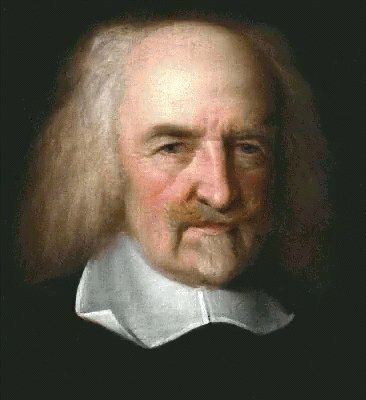If you like reading about philosophy, here’s a free, weekly newsletter with articles just like this one: Send it to me!
Thomas Hobbes is the first of the three great theorists of the social contract theory, along with John Locke (1632-1704) and Jean-Jacques Rousseau (1712-1778).
Despite his insistence on the social contract as the basis of government, Hobbes was not a defender of democracy. Early on, he published a book in which he warned of the dangers of democracy and his social contract theory makes the same point.
Hobbes lived in a time where the intellectual life in Europe had just come out of the Middle Ages: the discovery of the Americas by the Europeans took place just a hundred years before he was born. He felt that, in accordance with the rational principles applied in the sciences, philosophy should also be directed by rationality. So he asked, how can we create a rational morality for human beings, one that is based on experiment and observation, rather than religious belief?
This led him to the thought experiment of the “State of Nature”: what if one put a bunch of human beings into a situation like the one before the beginning of history, where every one can do what they like, without being restricted by morality, governments and laws? What would the resulting life for these humans look like?
And he answered: every one would have to fight for himself or herself. There would be no time in the lives of these people for culture, learning, not even for the refinement of advanced skills, like the building of better houses. Instead, every one would have to spend their whole day hunting and foraging, and whatever time was left, defending one’s possessions from the others. There would be no education, no cooperation, and therefore no medicine, no learning, no public infrastructure. In short, in his famous words, the life of man would be “solitary, poor, nasty, brutish, and short.”
What is then, the only way to escape this state of nature? Since all humans are more or less equal in power, what is needed is that one group of people take away the power from the others and use that imbalance of power in order to impose peace and cooperation among all. The social contract, in Hobbes’ eyes, is not a willing cooperation of grown-up agents who realise what their ultimate interests are – but the obedience of the weak who are forced into submission by the power of the state.
Happy Birthday, Thomas Hobbes!
Read the full article which is published on Daily Philosophy (external link)





